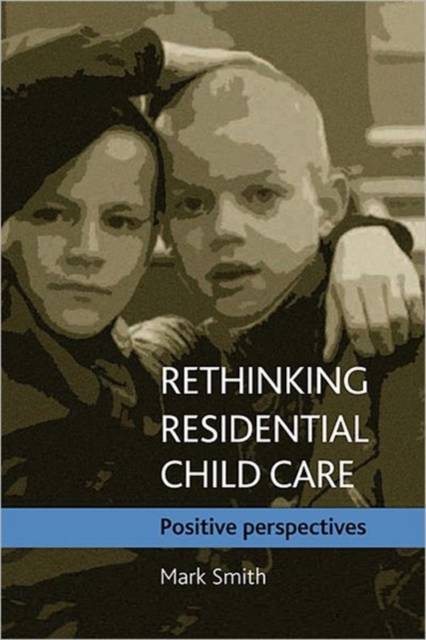
Door een staking bij bpost kan je online bestelling op dit moment iets langer onderweg zijn dan voorzien. Dringend iets nodig? Onze winkels ontvangen jou met open armen!
- Afhalen na 1 uur in een winkel met voorraad
- Gratis thuislevering in België vanaf € 30
- Ruim aanbod met 7 miljoen producten
Door een staking bij bpost kan je online bestelling op dit moment iets langer onderweg zijn dan voorzien. Dringend iets nodig? Onze winkels ontvangen jou met open armen!
- Afhalen na 1 uur in een winkel met voorraad
- Gratis thuislevering in België vanaf € 30
- Ruim aanbod met 7 miljoen producten
Zoeken
€ 79,45
+ 158 punten
Omschrijving
Residential child care is a crucial, though relatively neglected area of social work. And yet, revelations of abuse and questions of effectiveness have led to increasingly regulatory and procedural approaches to practice and heightened political and professional scrutiny. This book provides a broad and critical look at the ideas and policy developments that have shaped the direction of the sector. The book sets present-day policy and practice within historical, policy and organisational context. The author applies a critical gaze to attempts to improve practice through regulation and, fundamentally, challenges how residential child care is conceptualised. He argues that it needs to move beyond dominant discourses of protection, rights and outcomes to embrace those of care and upbringing. The importance of the personal relationship in helping children to grow and develop is highlighted. Other traditions of practice such as the European concept of social pedagogy are also explored to more accurately reflect the task of residential child care. The book will be of interest to practitioners in residential child care, social workers and students on social work and social care courses. It should be required reading for social work managers and will also be of interest to policy makers and students of social policy, education and childhood studies.
Specificaties
Betrokkenen
- Auteur(s):
- Uitgeverij:
Inhoud
- Aantal bladzijden:
- 224
- Taal:
- Engels
Eigenschappen
- Productcode (EAN):
- 9781861349088
- Verschijningsdatum:
- 25/02/2009
- Uitvoering:
- Paperback
- Formaat:
- Trade paperback (VS)
- Afmetingen:
- 155 mm x 231 mm
- Gewicht:
- 362 g

Alleen bij Standaard Boekhandel
+ 158 punten op je klantenkaart van Standaard Boekhandel
Beoordelingen
We publiceren alleen reviews die voldoen aan de voorwaarden voor reviews. Bekijk onze voorwaarden voor reviews.











